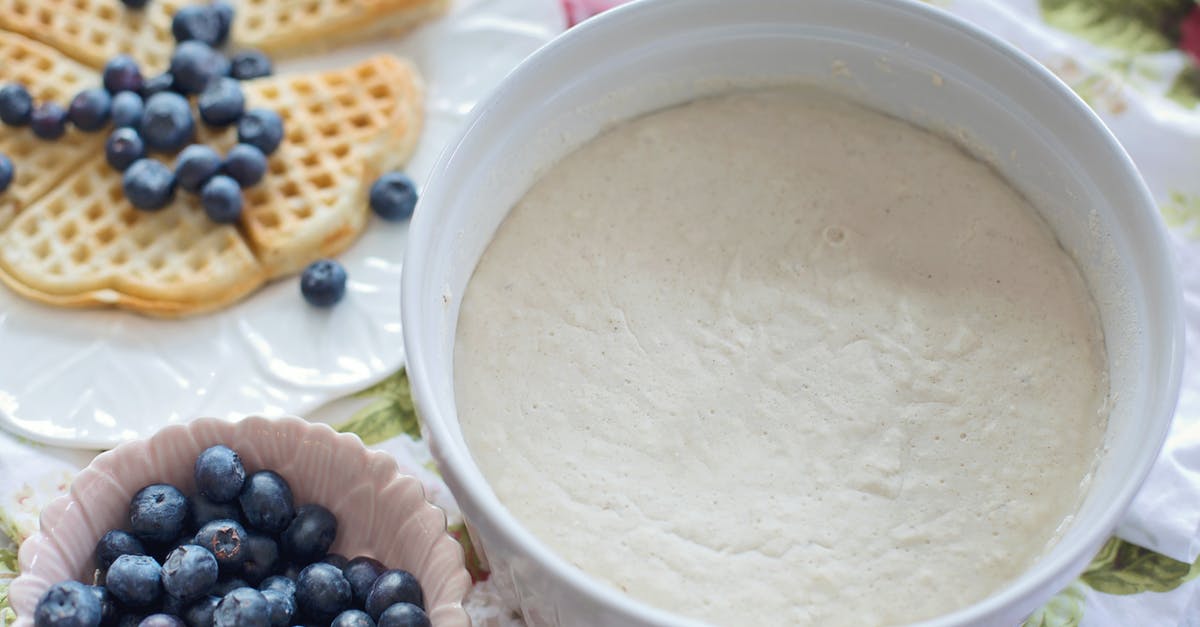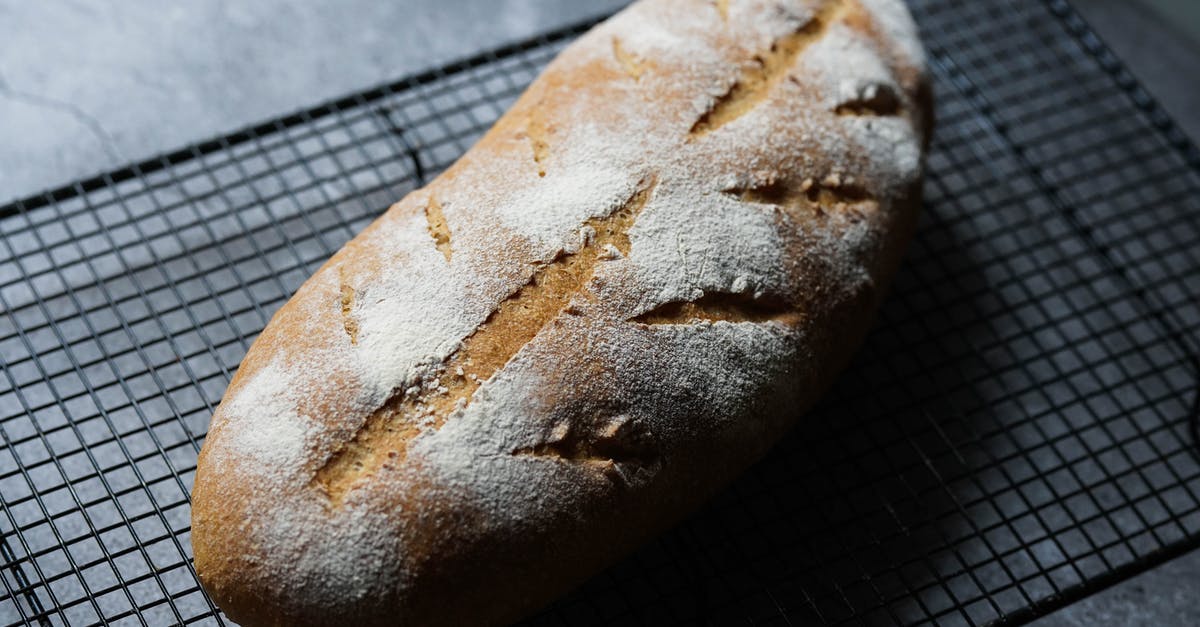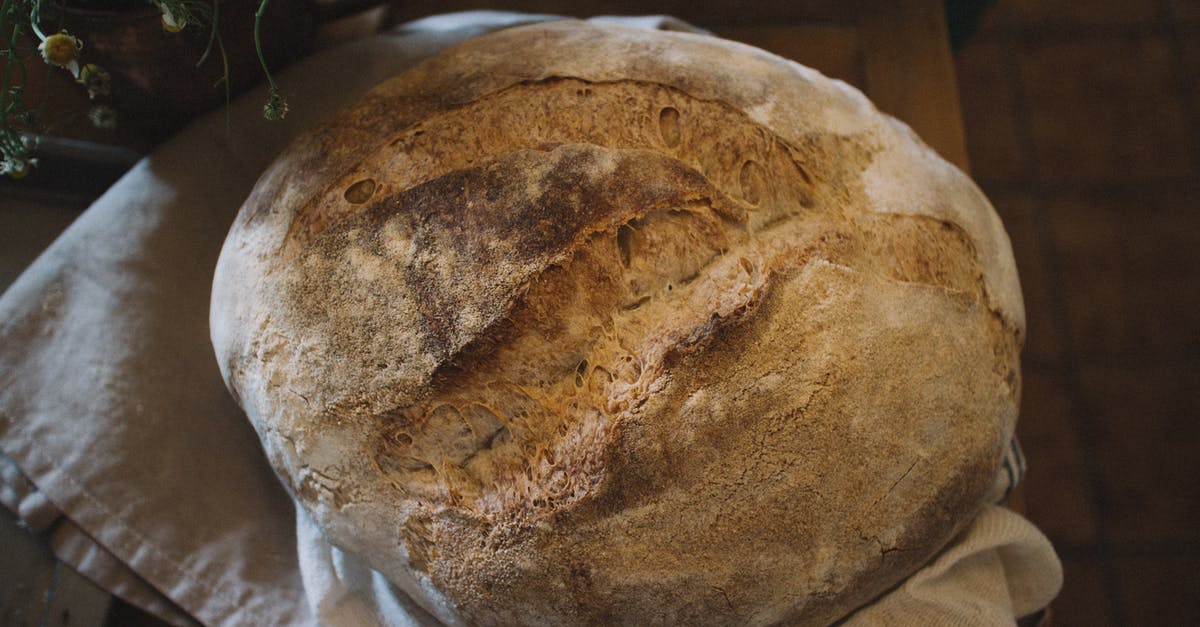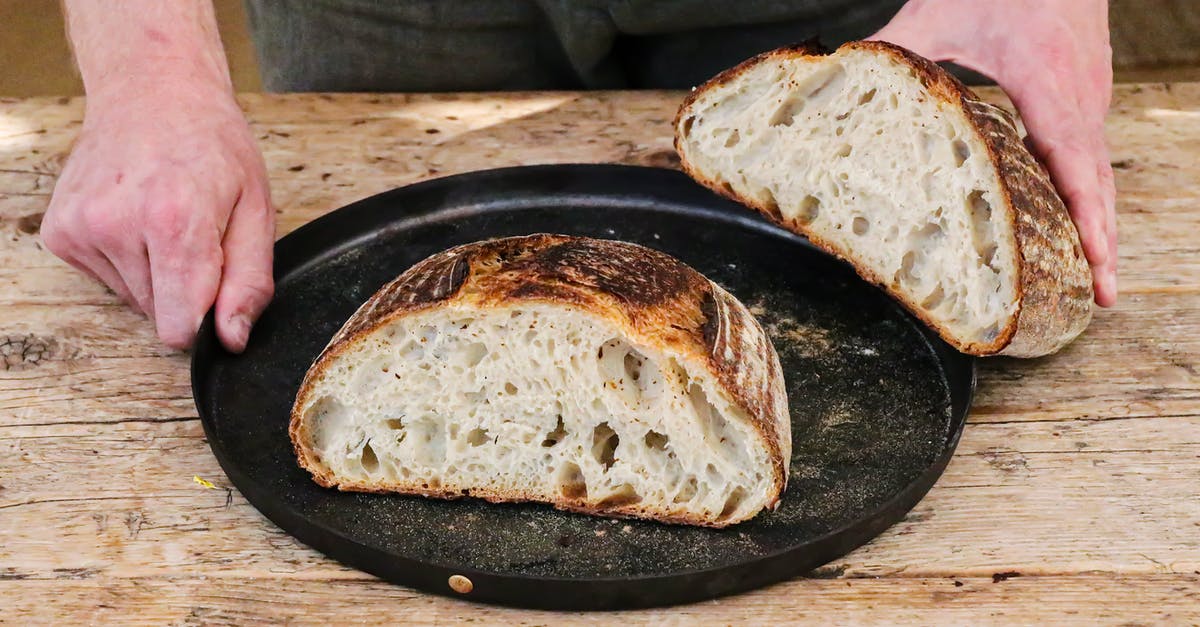Is buttermilk preferred for sourdough starter?

Is buttermilk a preferred milk for sour dough starter?
Best Answer
Normal sourdough starter is usually just flour and water. However, there are less common alternatives such as using fruit yeast and other sources of yeast.
The main problem with using things like milk or buttermilk is the danger of causing spoilage.
As another commenter already added,
"Adding milk works because milk is mostly water. It might even work better, as it also contains sugar (lactose) which will be eaten by your starter's yeasts and bacteria.
But it also contains other stuff, such as fats. And fats, after some time, get rancid. You probably won't want that taste in bread or pancakes. I would stick to water (which quite probably you'll find cheaper than milk).
Don't worry about rotten milk: your starter is already rotten. And it's a hostile environment for most microbes. It's very very improbable new microbes would survive there. But if they do, they'll be quite similar to the already existing ones."
A great overview from this comment:
"A sourdough starter is just Flour + Water + Time
Some add catalysts such as pineapple juice or grape skins etc. But what is fermenting is the flour! and this is the starter.
Once the starter is made, however you choose to make one, the finished starter will be a flour + water. The added "catalysts" are just to help make one. Once it is made then generally it is just fed flour + water to be kept going indefinitely.
There is such a thing as Yeast Water which is made and kept going with fruit but that is different.
When a starter is used in a sourdough it will be flour + water. The temperature and feeding schedule will affect the starter either making it more yeast or bacterial therefore making it more or less sour. But what also effects the final bread is how the starter is used within the dough, i.e. how much starter to use, how long the dough is fermented and at what temperature.
So many factors involved here.
No two people have exactly the same starter. And one starter can bring out different qualities in different breads depending on how it is used. And a change in feeding can change your starter.
Welcome to sourdough."
Best practices from Colorado State University:
"Considerations for bread starter variations: Amish Friendship Bread: Although rare, there have been incidents of foodborne illness associated with friendship-style bread, which differs from traditional sourdough by addition of milk and sugar, and thus provides an environment which could support growth of harmful microorganisms. To limit introductions of harmful bacteria in friendship bread starter, use pasteurized milk or cultured (soured) dairy and ferment in a refrigerator, not at room temperature."
Signs your starter may have gone wrong:
"Signs of Contamination A starter should be white, light gray or light tan. It should smell like bread dough, of yeast or of its ingredients. It should bubble subtly and occasionally burp. If the starter has liquid on top of it -- this is called hooch, and it is the alcohol the starter’s yeast produces from fermentation -- it should be clear, white, light gray or light brown. If the starter or its hooch is pink, green or dark brown, discard the starter. If it smells or looks moldy, discard the starter. If the starter is fizzing or the starter has spots or patches -- which are signs of foreign bacterial growth -- discard the starter."
Pictures about "Is buttermilk preferred for sourdough starter?"



Can I use buttermilk instead of sourdough starter?
I love baking and cooking with buttermilk.Adding buttermilk to your sourdough bread can be just what you're looking for if you want to turn your regular sourdough into a delicious sandwich bread or rolls. The buttermilk brings another layer of acidity to the bread which rounds out the mouthfeel a bit.What makes a sourdough starter better?
Tips on Sourdough Starter: TEMPERATURE: The colder your home, the longer it will take for the starter to grow and become active (bubbles). Find a warm spot (70-80 degrees) for the best results. On the stovetop, with the light turned on, or on top of the fridge.What type of flour is best to use in a sourdough starter?
Any flour containing starch is suitable for a sourdough starter, since it is the sugar that the microbes feed on. Glutenous flours, such as spelt, einkorn, rye, and wheat, tend to work best.How can I make my sourdough starter more robust?
Rye flour will help to make your starter more sour. To boost your sourdough starter with rye flour, substitute half your normal flour with rye flour at each feeding for a few days and you should see a noticeable difference in your starter's activity level.The Ultimate Sourdough Starter Guide
Sources: Stack Exchange - This article follows the attribution requirements of Stack Exchange and is licensed under CC BY-SA 3.0.
Images: Jill Wellington, Cats Coming, Monserrat Soldú, Geraud pfeiffer
